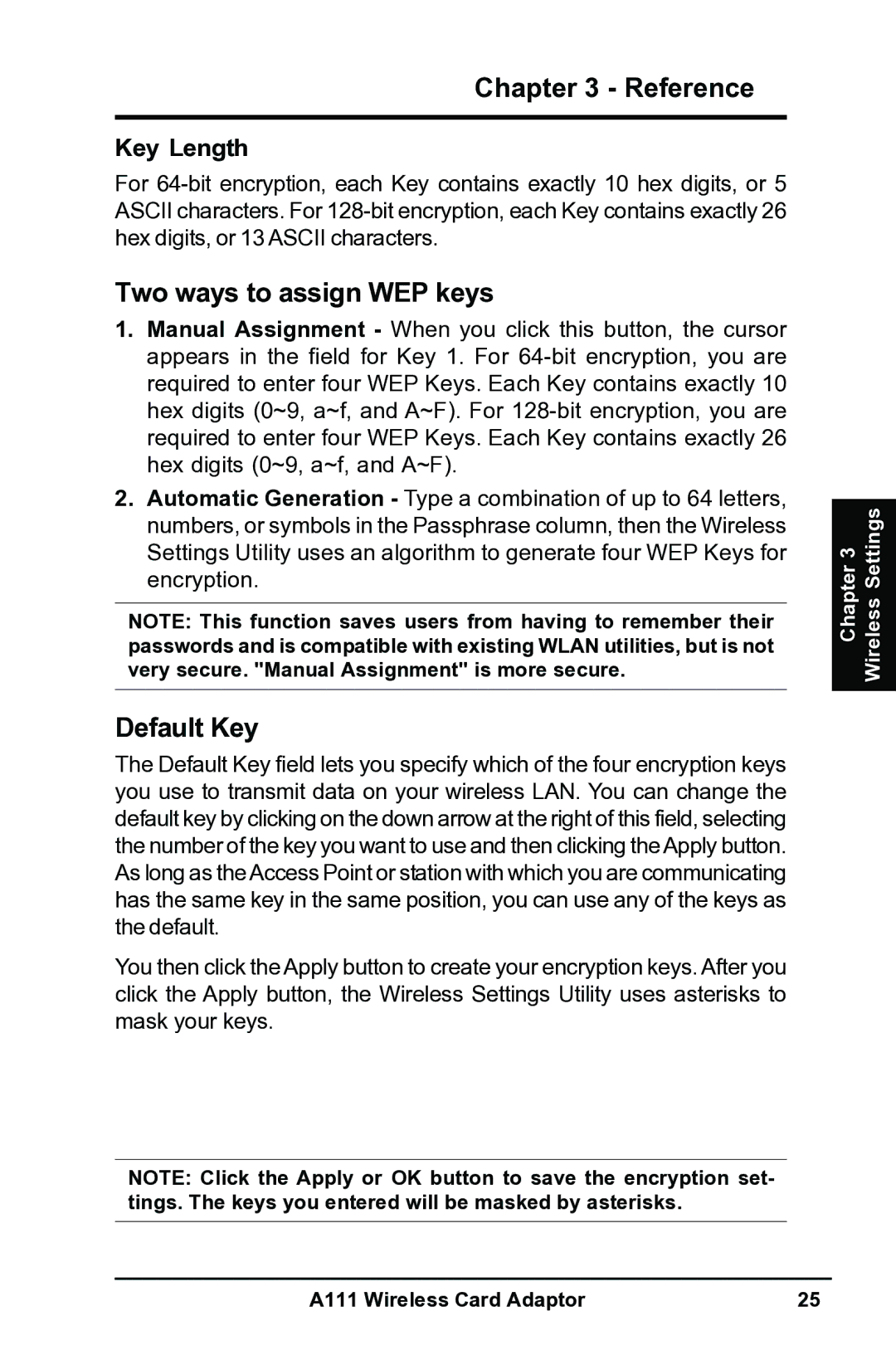
Chapter 3 - Reference
Key Length
For
Two ways to assign WEP keys
1.Manual Assignment - When you click this button, the cursor appears in the field for Key 1. For
2.Automatic Generation - Type a combination of up to 64 letters, numbers, or symbols in the Passphrase column, then the Wireless Settings Utility uses an algorithm to generate four WEP Keys for encryption.
NOTE: This function saves users from having to remember their passwords and is compatible with existing WLAN utilities, but is not very secure. "Manual Assignment" is more secure.
Default Key
The Default Key field lets you specify which of the four encryption keys you use to transmit data on your wireless LAN. You can change the default key by clicking on the down arrow at the right of this field, selecting the number of the key you want to use and then clicking theApply button. As long as the Access Point or station with which you are communicating has the same key in the same position, you can use any of the keys as the default.
You then click the Apply button to create your encryption keys. After you click the Apply button, the Wireless Settings Utility uses asterisks to mask your keys.
Chapter 3 Wireless Settings
NOTE: Click the Apply or OK button to save the encryption set- tings. The keys you entered will be masked by asterisks.
A111 Wireless Card Adaptor | 25 |
